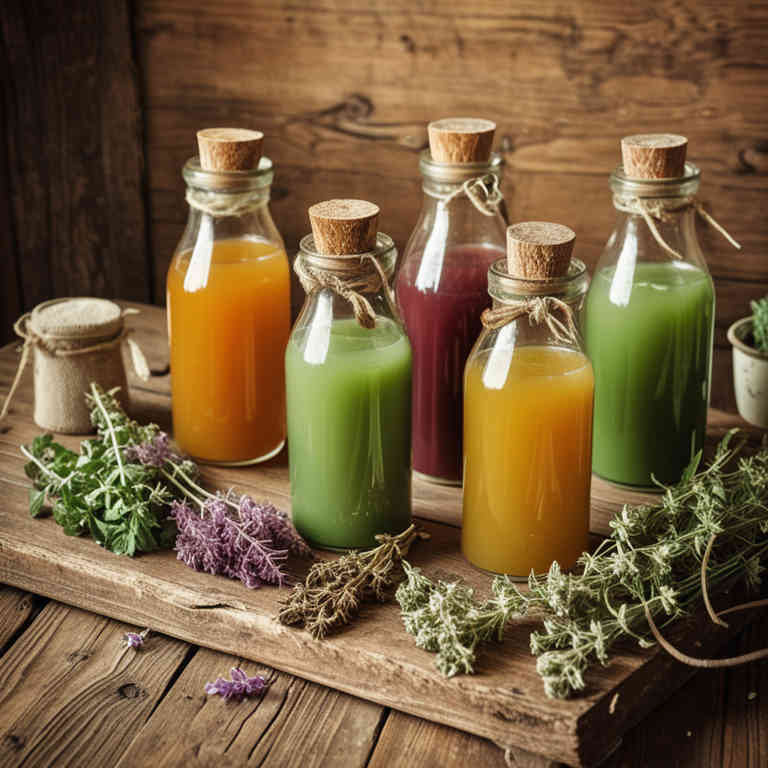10 Best Thymus Vulgaris Preparations
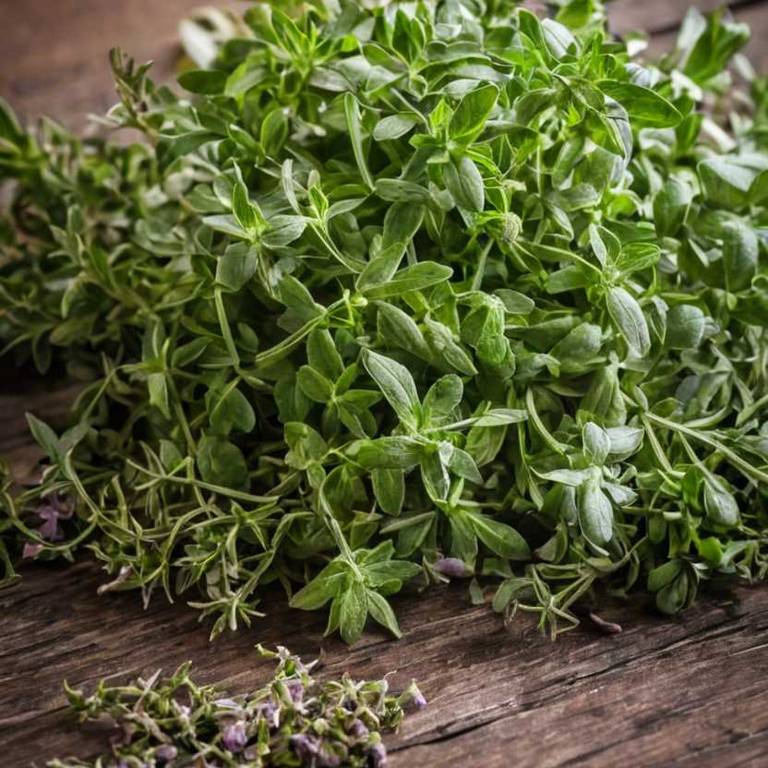
The best medicinal preparations of Thymus vulgaris are teas, tinctures, decoctions, capsules, and creams, each offering unique benefits for health and wellness.
Thymus vulgaris, commonly known as thyme, is often brewed into teas to soothe respiratory issues and promote digestion.
Tinctures provide a concentrated form of the herb, useful for addressing infections and boosting immunity.
Decoctions, made by simmering the dried leaves, are ideal for extracting its essential oils and antioxidants.
Capsules offer a convenient and standardized dose for daily use, while creams infused with thyme can help alleviate skin conditions and inflammation.
These diverse preparations highlight the versatility of thyme in traditional and modern herbal medicine.
Below there's a list of the 10 best herbal preparations of thymus vulgaris for medicinal purposes.
- 1. Teas
- 2. Tinctures
- 3. Decoctions
- 4. Capsules
- 5. Creams
- 6. Syrups
- 7. Mucillages
- 8. Lozenges
- 9. Oils
- 10. Juices
1. Teas
Thymus vulgaris teas is commonly used to treat respiratory infections, digestive issues, and to support immune function.
The most common medicinal uses of this herbal preparation include alleviating symptoms of colds, coughs, bronchitis, and sore throats, as well as aiding in digestion and reducing inflammation. It is also used to relieve stress and improve mood due to its calming effects. The bioactive constituents responsible for its medicinal properties include thymol, carvacrol, terpenes, and flavonoids, which possess antimicrobial, antifungal, and antioxidant properties.
These compounds contribute to its ability to fight infections and support overall health.

2. Tinctures
Thymus vulgaris tinctures is commonly used to support respiratory health, alleviate symptoms of colds and coughs, and promote immune system function.
These tinctures are frequently employed to treat ailments such as bronchitis, sinusitis, and upper respiratory infections due to their antiseptic and anti-inflammatory properties. The bioactive constituents responsible for these medicinal effects include thymol, carvacrol, and terpenoids, which exhibit antimicrobial, antioxidant, and immunostimulant activities. Additionally, the presence of flavonoids and essential oils contributes to its therapeutic benefits.
This herbal preparation is also used in aromatherapy to relieve stress and improve mental clarity.

3. Decoctions
Thymus vulgaris decoctions is commonly used to treat respiratory infections, digestive issues, and skin conditions due to its antimicrobial and anti-inflammatory properties.
The most common medicinal uses include alleviating symptoms of colds, coughs, bronchitis, and gastrointestinal disorders such as indigestion and nausea. It is also applied topically for wound healing and to address fungal infections like athlete's foot. The bioactive constituents responsible for these effects include thymol, carvacrol, terpenes, and flavonoids, which exhibit antimicrobial, antioxidant, and immunomodulatory activities.
These compounds contribute to the plant's ability to support immune function and combat pathogens.

4. Capsules
Thymus vulgaris capsules is commonly used to support respiratory health, alleviate symptoms of colds and coughs, and enhance immune function.
They are also used to treat digestive issues such as indigestion and bloating, and may help with stress-related ailments. The most common medicinal uses include treating respiratory infections, improving digestion, and boosting the immune system. The bioactive constituents responsible for these effects include thymol, carvacrol, terpenoids, and flavonoids, which have antimicrobial, anti-inflammatory, and antioxidant properties.
These compounds work together to provide the plant's therapeutic benefits.
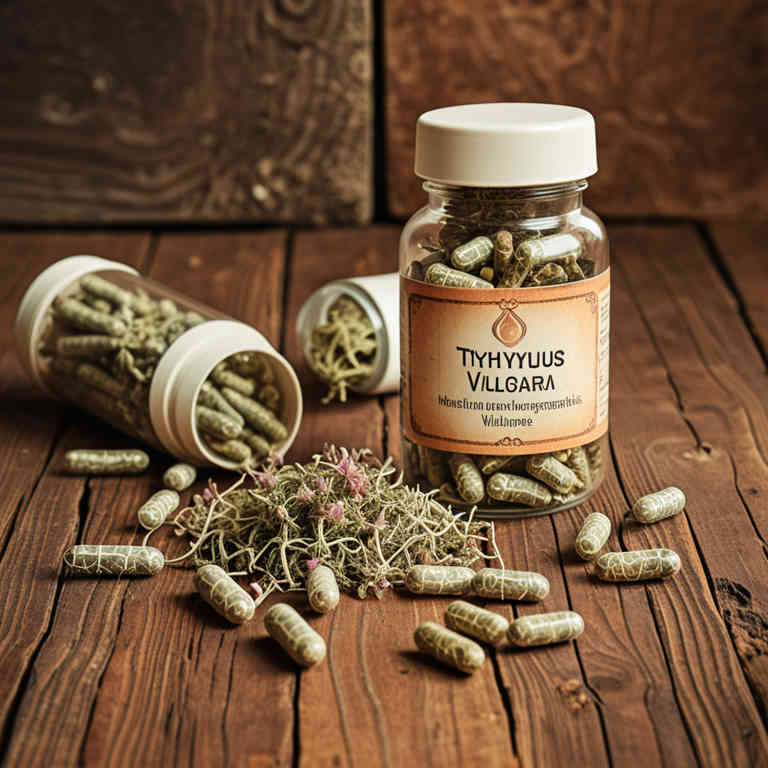
5. Creams
Thymus vulgaris creams is commonly used to treat respiratory infections, skin conditions, and digestive issues.
These creams are often applied topically to alleviate symptoms of coughs, colds, and bronchitis due to their antimicrobial and anti-inflammatory properties. They are also used to soothe skin irritations, eczema, and minor wounds because of their soothing and healing effects. The most common medicinal uses include treating respiratory tract infections, skin inflammation, and gastrointestinal discomfort.
The bioactive constituents responsible for these effects include thymol, carvacrol, terpenes, and flavonoids, which exhibit antimicrobial, antioxidant, and immunomodulatory activities.
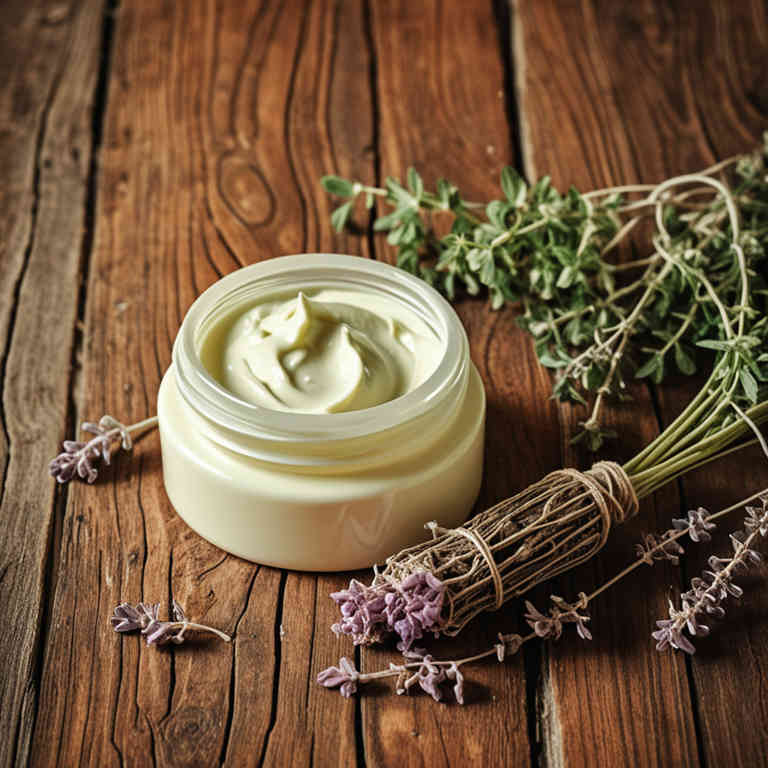
6. Syrups
Thymus vulgaris syrups is commonly used to treat respiratory infections, coughs, and sore throats due to its antimicrobial and expectorant properties.
The most common medicinal uses include alleviating symptoms of colds, bronchitis, and asthma, as well as supporting immune function. This herbal preparation is also used to relieve digestive issues such as bloating and indigestion. The bioactive constituents responsible for its medicinal properties include thymol, carvacrol, and other essential oils that exhibit antimicrobial, anti-inflammatory, and antioxidant effects.
These compounds contribute to its ability to combat infections and support overall respiratory and digestive health.

7. Mucillages
Thymus vulgaris mucillages is commonly used to support respiratory health, reduce inflammation, and boost the immune system.
This herbal preparation is often employed to treat ailments such as coughs, bronchitis, and upper respiratory tract infections. It is also used to alleviate symptoms of digestive issues like indigestion and gastritis. The bioactive constituents responsible for its medicinal properties include flavonoids, phenolic acids, and polysaccharides, which exhibit antioxidant, anti-inflammatory, and immunomodulatory effects.
These compounds work synergistically to enhance the body's natural defenses and promote overall wellness.
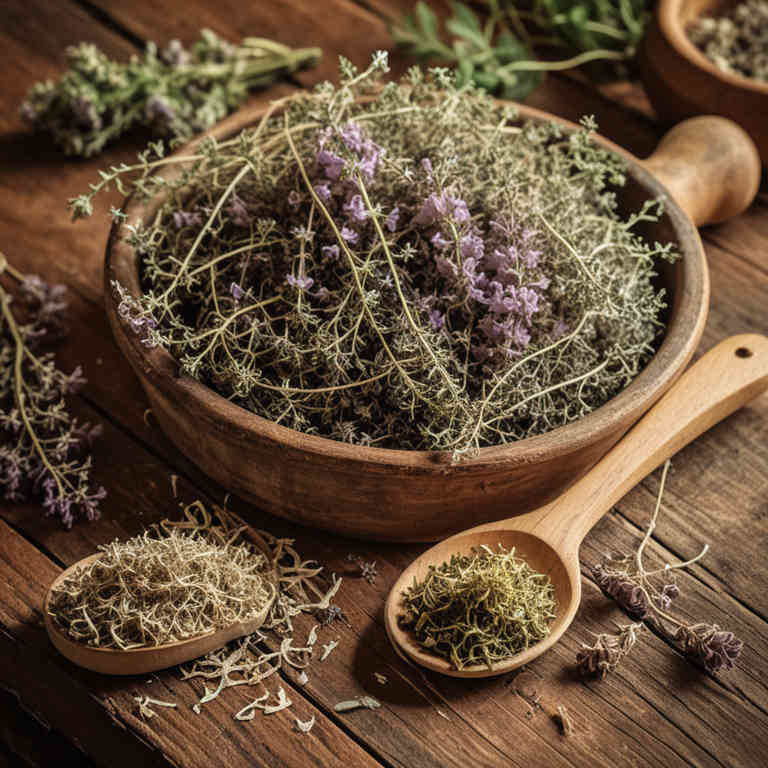
8. Lozenges
Thymus vulgaris lozenges is commonly used to alleviate symptoms of respiratory infections, sore throat, and cough.
These lozenges are often employed to treat ailments such as colds, bronchitis, and tonsillitis due to their antimicrobial and anti-inflammatory properties. The bioactive constituents responsible for these effects include thymol, carvacrol, and other essential oils that exhibit strong antiseptic and immune-boosting actions. Additionally, these compounds may help reduce inflammation and enhance the body's natural defenses against pathogens.
As a result, Thymus vulgaris lozenges are a popular choice in natural remedies for supporting respiratory health.

9. Oils
Thymus vulgaris oils is commonly used to treat respiratory infections, digestive issues, and skin conditions due to its antimicrobial and anti-inflammatory properties.
The most common medicinal uses include alleviating symptoms of bronchitis, asthma, and coughs, as well as promoting digestion and treating fungal infections like athlete's foot. It is also used in aromatherapy to relieve stress and improve mood. The bioactive constituents responsible for these effects include thymol, carvacrol, and terpenes, which exhibit strong antibacterial, antifungal, and antioxidant activities.
These compounds work synergistically to provide the oil's therapeutic benefits.

10. Juices
Thymus vulgaris juices is commonly used to support respiratory health, alleviate digestive issues, and boost immune function.
It is frequently employed to treat ailments such as coughs, bronchitis, indigestion, and fatigue. The most common medicinal uses include easing symptoms of respiratory infections and enhancing overall vitality. The bioactive constituents responsible for its medicinal properties include thymol, carvacrol, and other essential oils that possess antimicrobial, anti-inflammatory, and antioxidant effects.
These compounds contribute to its ability to fight infections and support the body's natural defenses.
